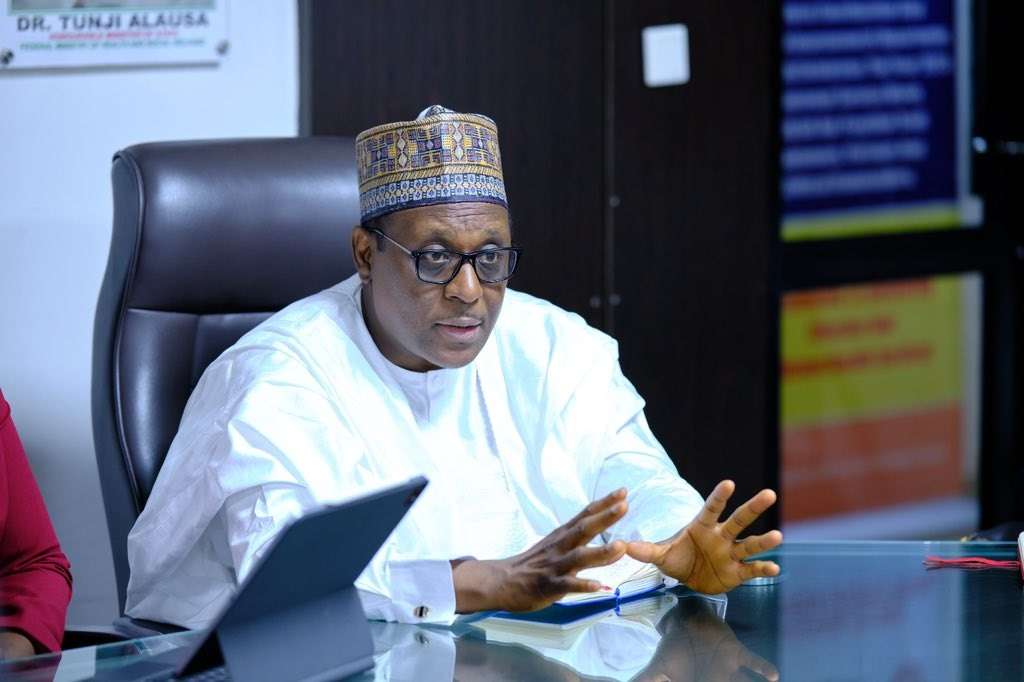
In an effort to accelerate progress toward the global goal of eradicating HIV by 2030, the Federal Government has significantly increased funding for HIV programmes, allocating ₦10 billion from the proposed ₦1.3 trillion healthcare budget for 2025. The funding will support antiretroviral treatment and prevention programmes aimed at reaching at least 100,000 Nigerians living with HIV.
Coordinating Minister of Health and Social Welfare, Professor Muhammad Ali Pate, disclosed this during a virtual World AIDS Day Media Roundtable organised by the Global Fund. Represented by the Director General of the National Agency for the Control of AIDS (NACA), Dr Temitope Ilori, Pate outlined the government’s strategic approach to scaling up HIV interventions while addressing systemic challenges in the healthcare sector.
According to Pate, the adoption of the Sector-Wide Approach (SWAp) will ensure better coordination and accountability in the use of resources at both national and sub-national levels. “This approach guarantees robust reporting and monitoring mechanisms,” he said, adding that private-sector engagement through the HIV Trust Fund has been instrumental in mobilizing domestic resources, with notable contributions from major enterprises and philanthropists.
He further revealed plans to reduce dependency on foreign aid by prioritising the local production of HIV-related commodities such as condoms, antiretroviral drugs, and rapid test kits. “Discussions are underway with pharmaceutical companies to establish production facilities by the end of 2025, supported by government tax waivers on equipment. Local manufacturing will lower costs and enhance sustainability,”
“The government has also intensified prevention efforts, particularly through the Prevention of Mother-To-Child Transmission (PMTCT) program, which tested over four million pregnant women in 2023. The initiative aims to ensure that HIV services are accessible across 40,000 mapped health facilities nationwide. Workforce development remains a key focus, with over 40,000 health workers trained in 2023 and a target of 120,000 by 2025.” He stated.
Despite the progress, Pate identified significant challenges, including stigma, discrimination, and funding gaps at sub-national levels. “Stigma and discrimination continue to deter individuals from accessing care and medication,” he said, emphasizing the need for more public education and supportive policies.
Global health leaders participating in the roundtable, including UNAIDS Deputy Executive Director Christine Stegling and Global Fund Executive Director Peter Sands, stressed the importance of sustained funding and innovative approaches to combat HIV. Stegling highlighted the need to address structural barriers such as debt servicing and revenue constraints to build sustainable healthcare systems, while Sands warned of donor fatigue and the risks posed by funding cuts.
Dr John Nkengasong, U.S. Global AIDS Coordinator for PEPFAR, reaffirmed the U.S.’s commitment to supporting local manufacturing in Africa. He noted that PEPFAR is prepared to purchase millions of made-in-Africa HIV rapid tests and antiretroviral doses, contingent on meeting quality and cost-effectiveness standards.
The panelists collectively called for transparency, accountability, and innovative funding mechanisms to ensure that the fight against HIV remains on track. They emphasised that achieving the 2030 global eradication target would require concerted efforts from all stakeholders, including governments, international partners, and local communities.










